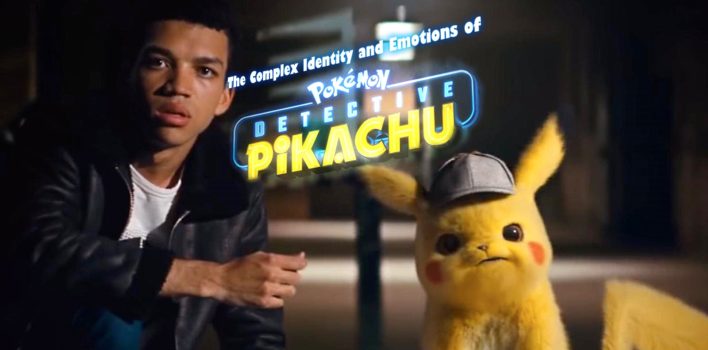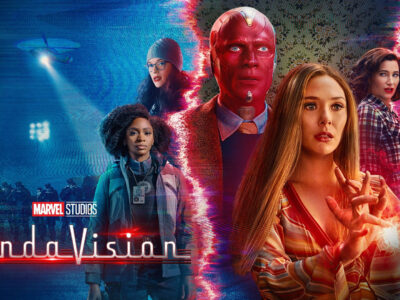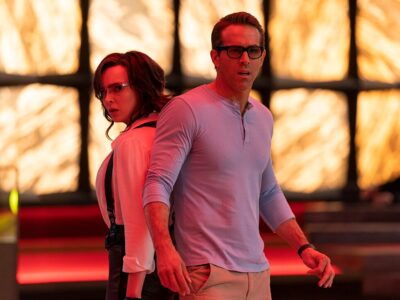The Complex Identity and Emotions of Pokémon Detective Pikachu
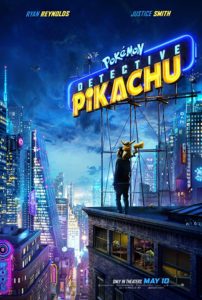 It would be easy to dismiss Pokémon Detective Pikachu as “just” any number of things: “Just” a kids’ movie. “Just” a video game movie. “Just” a funny-animal movie. “Just” a supernatural mystery. “Just” a live-action spinoff of a long-running anime. “Just” a story about [spoiler] run amok. But, like its titular hero himself, the film’s cutesy identity belies a deeper, sometimes darker message about difficult emotions and a complicated identity.
It would be easy to dismiss Pokémon Detective Pikachu as “just” any number of things: “Just” a kids’ movie. “Just” a video game movie. “Just” a funny-animal movie. “Just” a supernatural mystery. “Just” a live-action spinoff of a long-running anime. “Just” a story about [spoiler] run amok. But, like its titular hero himself, the film’s cutesy identity belies a deeper, sometimes darker message about difficult emotions and a complicated identity.
Take the (human) lead, for instance. We’re introduced to Tim Goodman as one of the last in a group of Pokémon fans in a small town; a failed Pokémon trainer who now pays the bills as an insurance agent. To his friends, Tim tries to keep a smile on his face; but in reality, he seems to have signs of dysthymia, or Persistent Depressive Disorder.
 He’s lost interest in activities he used to love, and doesn’t interact well with the creatures he once wanted to make his life. He’s withdrawn from his friends, doesn’t seem interested in making more, and it seems to be a herculean effort to accomplish the tasks set before him; a problem compounded by the fact that those tasks are to disassemble the remaining pieces of his late father’s life in Ryme City. These symptoms are signs of depression, particularly an untreated depression; and in the midst of this illness, he meets an unusual Pikachu whose voice he can somehow understand.
He’s lost interest in activities he used to love, and doesn’t interact well with the creatures he once wanted to make his life. He’s withdrawn from his friends, doesn’t seem interested in making more, and it seems to be a herculean effort to accomplish the tasks set before him; a problem compounded by the fact that those tasks are to disassemble the remaining pieces of his late father’s life in Ryme City. These symptoms are signs of depression, particularly an untreated depression; and in the midst of this illness, he meets an unusual Pikachu whose voice he can somehow understand.
Note: I can’t get any further in this article without spoilers. If you haven’t seen Pokémon Detective Pikachu yet, but would like to, stop reading now.
While this Pikachu may seem to just be a cute talking animal (both in the way he looks and in the obsessive investigation and coffee-drinking that’s consumed his life), there’s far more under the surface. A deep mystery about his nature and mission has consumed him, and this mystery leads him to a particularly pernicious and difficult mental state called Impostor Syndrome.
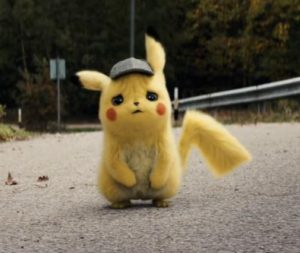 This all comes to a head when he discovers that he was on Mewtwo’s side during the events that killed his partner. Suddenly in his mind he’s not a hero, helping people by solving crimes; He’s a traitor and allied with Mewtwo against humanity and the Pokémon they work with. Worse, he killed his old partner and wounded his new partner in the act. He’s a fraud, he decides; and so he walks away.
This all comes to a head when he discovers that he was on Mewtwo’s side during the events that killed his partner. Suddenly in his mind he’s not a hero, helping people by solving crimes; He’s a traitor and allied with Mewtwo against humanity and the Pokémon they work with. Worse, he killed his old partner and wounded his new partner in the act. He’s a fraud, he decides; and so he walks away.
Both of the main characters are defined by their mental state, and they’re both defined by a lack of identity. Tim’s lack of identity manifests itself in his depression, and Pikachu’s lack of identity leads to his impostor syndrome. But this becomes even more complicated when they run into Howard Clifford, a man who is ostensibly on a quest to uncover the best possible version of himself and has decided that Pokémon are the way to make that happen. The answer, Clifford implies, is to become close partners with the creatures; for people to attach their identities to the creatures (he doesn’t explain how this is supposed to make people better). Unfortunately, he means this in a much more literal way than he lets on.
At the film’s climax, Clifford has used a chemical and a mind-controlled Mewtwo to physically and mentally join the inhabitants of Ryme City to their Pokémon, subsuming each of their identities in favor of the whole. Through a pretty dramatic and impressive battle scene, Tim and Pikachu defeat Clifford and return the city to normal. And though the story mechanics are all present to “fix” both Tim and Pikachu, to repair their mental and emotional state via some sort of contrived explanation about the power of teamwork or seeing the way other people experience their identity, this film does nothing of the sort.
Winning doesn’t fix them.
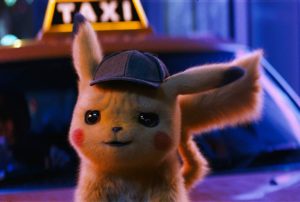 Pikachu is healed, at least somewhat, when he discovers his true identity: far from being a collaborator with the enemy, he’s actually a hero (well, two heroes, really) who risked his life for another. Discovering his true nature has made him realize that he can be a hero, but that discovery had to be facilitated by a Pokémon demigod (a demégod?).
Pikachu is healed, at least somewhat, when he discovers his true identity: far from being a collaborator with the enemy, he’s actually a hero (well, two heroes, really) who risked his life for another. Discovering his true nature has made him realize that he can be a hero, but that discovery had to be facilitated by a Pokémon demigod (a demégod?).
Tim’s struggles are a bit more difficult. He discovers that his father is alive, restoring his understanding of his identity. He uses his skills and abilities to help others, moving beyond his original desire to just be a normal old insurance salesman (or so it seems). He even experiences a bit of his original desire to be a Pokémon trainer. But up to the last moments of the film, he’s still unsure about that identity; he still wants to leave Ryme City and go back to his old life. When the camera pans up on a repaired world full of people who have regained their unique identities, Tim has made a step toward understanding his father; and, in the process, toward understanding his own identity. He’s not healed, but it looks like he might be growing toward healing.
For both of them, coming to grips with their identity was key to starting on their recovery.
 These are difficult identity problems experienced by complex and real characters around our world, too. You can’t do what you’re supposed to do, feel how you want to feel, unless you know who you really are. And for each and every one of us, an enemy’s attack has left us dead and broken.
These are difficult identity problems experienced by complex and real characters around our world, too. You can’t do what you’re supposed to do, feel how you want to feel, unless you know who you really are. And for each and every one of us, an enemy’s attack has left us dead and broken.
We can’t get our identity back unless our memory and reality is restored by a greater being. For Tim and Pikachu, that being was Mewtwo; a powerful creature of humanity’s own creation. But for us, that won’t work. The things we create to put our identity into are weak and fallible as the machinations and chemicals of Clifford himself; we need Someone greater. Someone who knows us much better than we know ourselves.
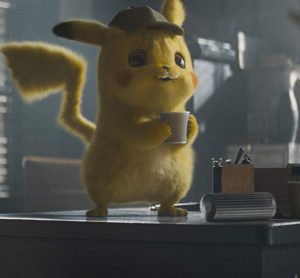 It’s not a simple answer, and it’s not an all-encompassing answer (in this life, at least). Finding your identity, even through Jesus, is a long and arduous process of self-reflection and self-denial. It may involve medicine. It probably involves others. Tim and Pikachu find help and healing within 104 minutes, but you probably won’t. You may not even be completely healed of it all until eternity.
It’s not a simple answer, and it’s not an all-encompassing answer (in this life, at least). Finding your identity, even through Jesus, is a long and arduous process of self-reflection and self-denial. It may involve medicine. It probably involves others. Tim and Pikachu find help and healing within 104 minutes, but you probably won’t. You may not even be completely healed of it all until eternity.
But hopefully, with your identity intact, you can begin your quest, your cause; to catch and train each and every Poké—wait, no. To become the best version of yourself that you can. To be the person God made you to be.
And then to catch and train every Pokémon in the world.


